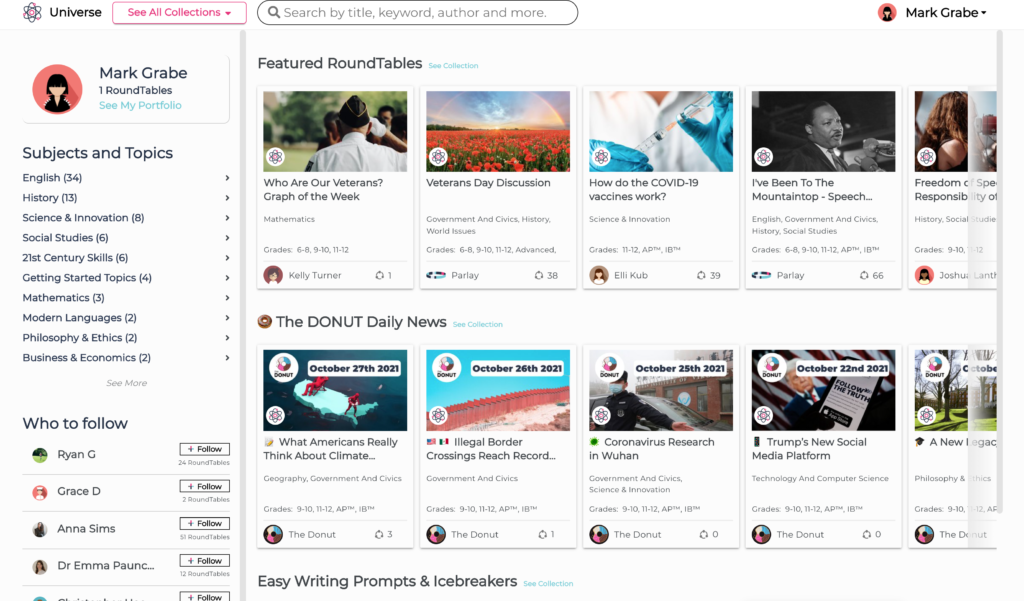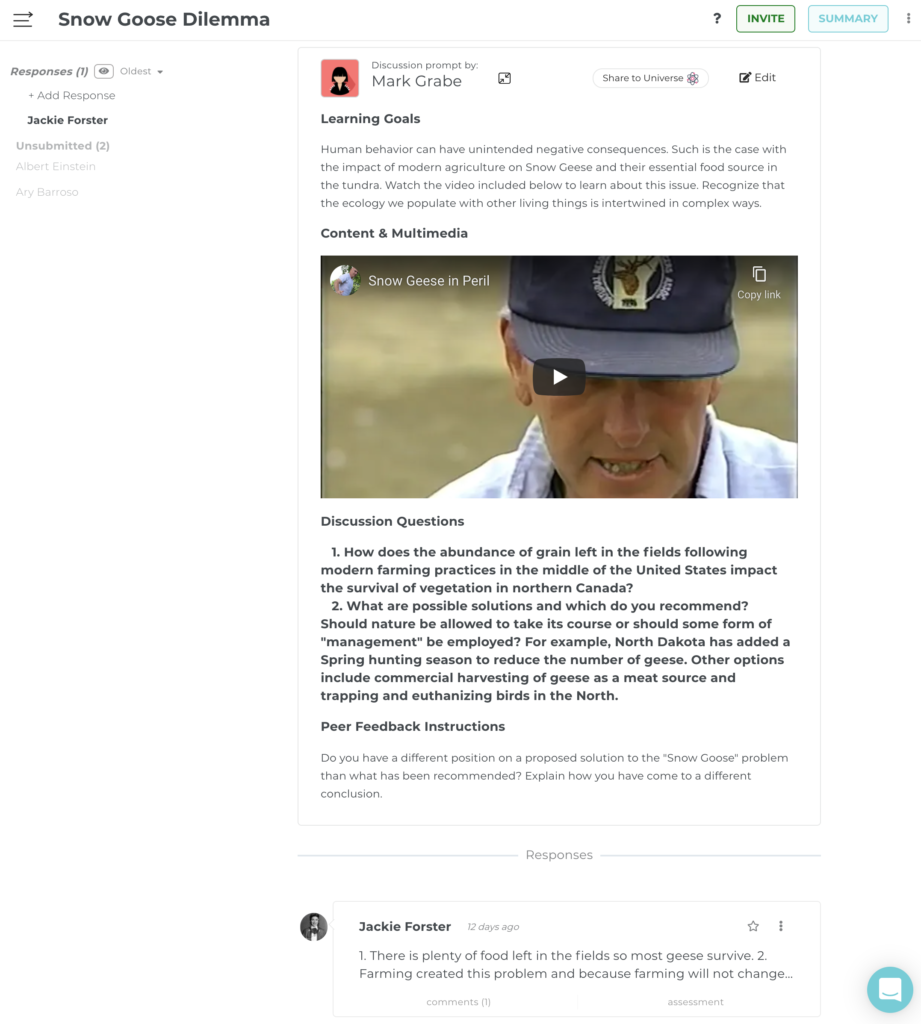My Instructional Design and Technology class a week or so ago was discussing WebQuests as an example of a scaffolded information problem-solving task. I assume folks who read this blog have memories of the popularity of WebQuests. I say memories because even good educational ideas seem to fade as newer things come along.
I conclude my classes by having a student volunteer or me when no one has something to present offer a short description of a tech tool or service they feel educators should explore. A student described Parlay – a tool intended to help educators structure discussion. We noticed some similarities of the structure of a Parlay discussion and WebQuest and decided the Parlay approach might be a way to extend a WebQuest into a discussion or a debate.
A Parlay “design” is organized into four components – goals, content, discussion questions, and peer responses. Parlay offers a collection of lessons within what the service describes as the Parlay Universe.

You can also choose to create your own lesson and assign it to a class or maybe eventually contribute it to the Parlay Universe.
I have a favorite WebQuest called the “Snow Goose Dilemma” I created many years ago. I redid this exercise using Parlay and a YouTube video I found within Parlay.

This example can be found at https://go.parlayideas.com?invite_code=4m1@8BhsY. A lesson can be found by sharing a code or a link. This is the link option.
Parlay generates pseudonyms for participants so responses to the discussion questions are anonymous (the teacher has access to a dashboard that provides actual identities and other information about student activity). Other students are then invited to offer feedback (respond) to the question responses. Depending on the content and discussion questions this could easily become a format for lessons in argumentation.
Parlay offers educators a free trial with a cost of $160 per year. This price likely will put many off because it may seem a service one would use occasionally. The company sees things differently. It is too bad there are not other more intermediate opportunities for participation.
![]()


You must be logged in to post a comment.